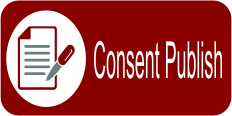Madrasah Teachers’ Self Efficacy on Constructing Literacy-Based Teaching Materials
Abstract
Keywords
Full Text:
PDFReferences
Bandura, A. (1994). Self-efficacy. In V. S. Ramachaudran (Ed.), Encyclopedia of human behavior (Vol (pp. 71–81). Academic Press.
Fakhriyah, F., Masfuah, S., & Mardapi, D. (2019). Developing scientific literacy-based teaching materials to improve students’ computational thinking skills. Jurnal Pendidikan IPA Indonesia, 8(4), 482–491. https://doi.org/10.15294/jpii.v8i4.19259
Fisher, R. A. (2014). The impacts of the voice change, grade level, and experience on the singing self-efficacy of emerging adolescent males. Journal of Research in Music Education, 62(3), 277–290. https://doi.org/10.1177/0022429414544748
Fraile, J., Panadero, E., & Pardo, R. (2017). Co-creating rubrics: The effects on self-regulated learning, self-efficacy and performance of establishing assessment criteria with students. Studies in Educational Evaluation. https://www.sciencedirect.com/science/article/pii/S0191491X1630205X
Ghasemboland, F., & Hashim, F. B. (2013). Teachers’ self-efficacy beliefs and their English language proficiency: A study of nonnative EFL teachers in selected language centers. Procedia-Social and Behavioral Sciences. https://www.sciencedirect.com/science/article/pii/S1877042813038561
Gist, M. E. (1987). Self-efficacy: Implications for organizational behavior and human resource management. In The Academy of Management Review (Vol. 12, Issue 3, pp. 472–485). Academy of Management. https://doi.org/10.2307/258514
Hackett, G. (2010). Self-efficacy in career choice and development. In A. Bandura (Ed.), Self-Efficacy in Changing Societies (pp. 232–258). Cambridge University Press. https://doi.org/10.1017/cbo9780511527692.010
Haskins, C. (2017). The writing problem: Teacher self-efficacy and instruction. Learning to Teach. https://openjournals.utoledo.edu/index.php/learningtoteach/article/view/222
Kinsler, K. L. (2017). Writing Self-Efficacy and Self-Regulated Strategy Development Instruction: Perceptions of Three Sixth-Grade Students with Learning Disabilities. search.proquest.com. https://search.proquest.com/openview/d2202d00feb05fed1cf85513fbf59af0/1?pq-origsite=gscholar&cbl=18750
Luna, C., Solsken, J., & Kutz, E. (2000). Defining literacy: Lessons from high-stakes teacher testing. In Journal of Teacher Education (Vol. 51, Issue 4). https://doi.org/10.1177/0022487100051004003
Matoti, S., & Shumba, A. (2011). Assessing the writing efficacy of post-graduate students at a university of technology in South Africa. Journal of Social Sciences. https://doi.org/10.1080/09718923.2011.11892961
Moreno, R., & Kilpatrick, J. (2018). Student perceptions of self-efficacy in the foreign language classroom: A design-based research study. EDeR. Educational Design Research, 2(1). https://doi.org/10.15460/eder.2.1.1214
Permendiknas RI. (2007). Peraturan Menteri Pendidikan Nasional Republik Indonesia Tentang Kompetensi Guru (Permendiknas Nomor 16 Tahun 2007). Revista Brasileira de Ergonomia, 9(2), 10. https://www.infodesign.org.br/infodesign/article/view/355%0Ahttp://www.abergo.org.br/revista/index.php/ae/article/view/731%0Ahttp://www.abergo.org.br/revista/index.php/ae/article/view/269%0Ahttp://www.abergo.org.br/revista/index.php/ae/article/view/106
The Jakarta Post, I. (2020). HAI 2020: Indonesia’s literacy program show great success. The Jakarta Post. https://www.thejakartapost.com/adv/2020/09/07/hai-2020-indonesias-literacy-programs-show-great-success.html
Tomlinson, B. (2016). The Importance of Materials Development for Language Learning. Issues in Materials Development, 1998, 1–9. https://doi.org/10.1007/978-94-6300-432-9_1
Torres, J., & Alieto, E. (2019). English learning motivation and self-efficacy of Filipino senior high school students. In Asian EFL Journal. researchgate.net. https://www.researchgate.net/profile/Joel-Torres-8/publication/336286588_English_Learning_Motivation_and_Self-Efficacy_of_Filipino_Senior_High_School_Students/links/5d99f4d4299bf1c363fbbeb0/English-Learning-Motivation-and-Self-Efficacy-of-Filipino-Senior-
Wang, C., & Sun, T. (2020). Relationship between self-efficacy and language proficiency: A meta-analysis. System. https://www.sciencedirect.com/science/article/pii/S0346251X20307260
DOI: https://doi.org/10.18860/mad.v16i1.18019
Copyright (c) 2023 Madrasah: Jurnal Pendidikan dan Pembelajaran Dasar

This work is licensed under a Creative Commons Attribution-ShareAlike 4.0 International License.



